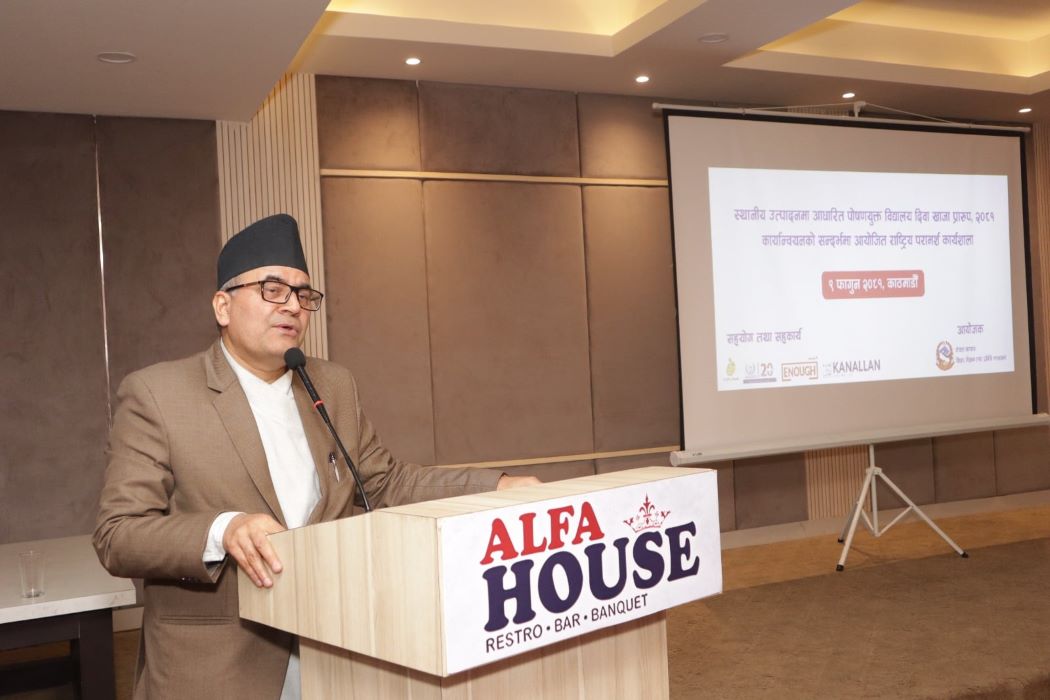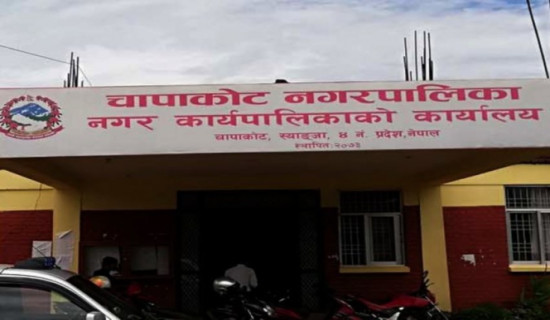- Tuesday, 25 February 2025
Stakeholders Call for Increased Investment in School Meal Program
Kathmandu, Feb.25: Stakeholders have called for increased investment in the school meal program, emphasizing the necessity of nutritious meals for children's learning.
During the National Consultative Workshop on the Implementation of the Local Production-Based Nutritious School Meal Framework, 2081 , organized by the National CFLG Forum in collaboration with Ministry of Education, Science, and Technology, Jagriti Child and Youth Concern Nepal, World Vision International Nepal, and KANALLAN, participants highlighted the effectiveness implementation and need for increased investment in the school meal program.
This investment enhances educational access, improves learning outcomes, and helps build a strong, healthy workforce, ultimately benefiting the national economy, according to stakeholders.
They stressed on the importance of nutrition, noting that school meal programs contribute to healthy bodies and a hunger-free learning environment.
They also argued that since Article 26 of Nepal’s Constitution defines food security and sovereignty as fundamental rights, and Article 51 includes policies to increase investment in agriculture for food sovereignty, the school meal program must be sustainably implemented.
Govinda Prasad Aryal, Under Secretary of the Planning and Monitoring Division, during his presentation, highlighted that studies indicate every dollar invested in school meals yields a return of over five dollars.
He reiterated that the mid-day school meal program is expected to positively impact child development and families.
He noted the government's commitment to promoting the School Mid-day Meal Framework, 2081, focusing on relevance, utility, coordination, partnership, commitment, and accountability to encourage healthy, locally produced snacks.
Hari Prasad Aryal from the Center for Education and Human Resource Development said that the Locally Produced Nutritious School Meal Framework, 2081 was approved on October 8 through a ministerial decision.
He mentioned about the program's alignment with policy arrangements, including the mandatory and free education law, the school education sector plan, and the nutrition-based mid-day school meal model.
He noted a budget of 8.46 billion allocated for the program, benefiting 3.2 million students, and emphasized the need for improved organization and increased investment through stakeholder collaboration.
Nilkantha Dhakal from the Ministry of Education highlighted that the school meal program is interconnected with multiple sectors, requiring coordination from policy formulation to implementation.














-original-thumb.jpg)

-original-thumb.jpg)